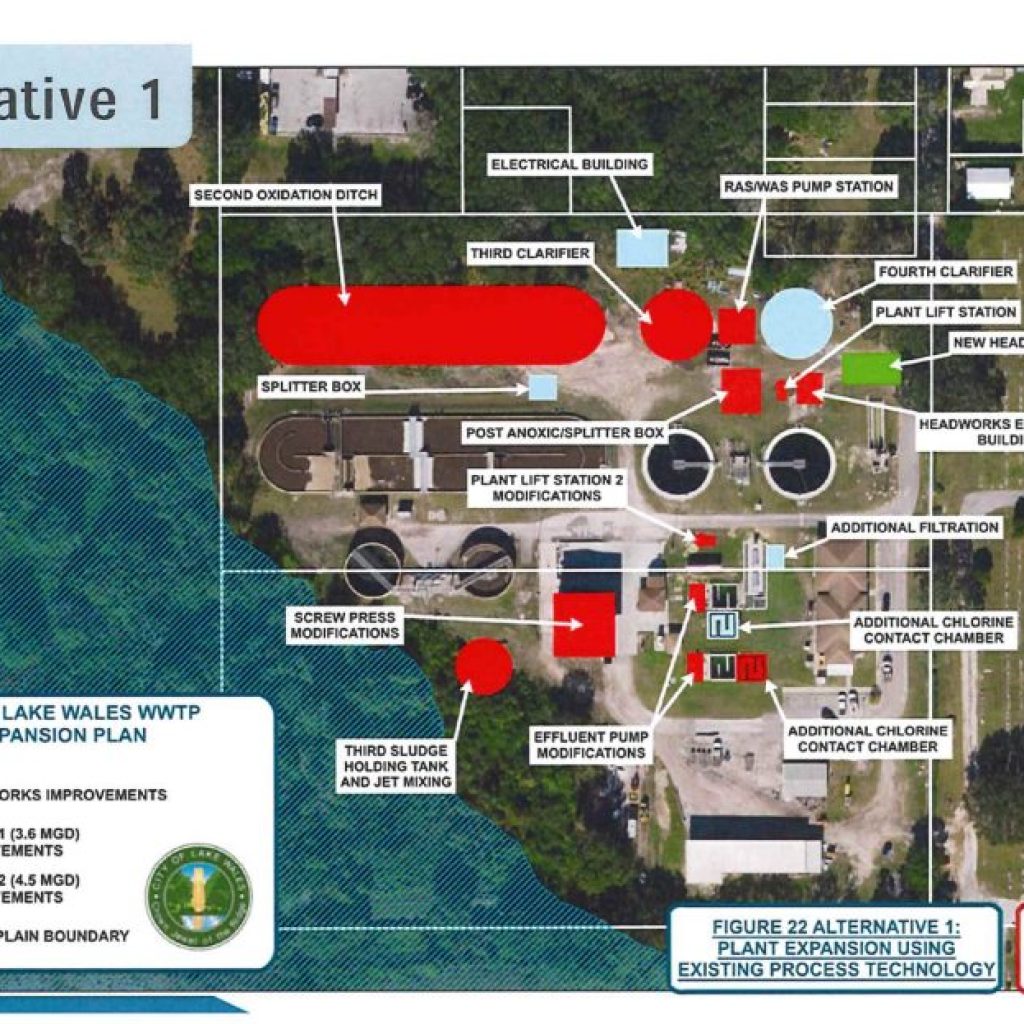
by James Coulter
To prevent the city’s water and wastewater systems from exceeding capacity limitations, the City of Lake Wales is considering an expansion to its wastewater treatment plant, estimated to cost $89 million.
At their workshop session on Wed. June 23, Lake Wales city commissioners were given a presentation by representatives from Kimley Horn & Associates, which had been contracted by the city “to identify capacity limitations within the wastewater and reclaimed water systems.”
Jamison Tondreault, water/wastewater project manager at Kimley-Horn, presented the flow projections for the city’s water and wastewater system. Currently, the system is at 1.2 million gallons per day (MGD), which is over half the current capacity of 2.19 MGD.
Furthermore, Tondreault explained that the city is expected to reach 3.5 MGD, potentially even 4.6 MGD, within 20 years. In fact, the city could even reach 80 percent capacity by 2028 or even exceed capacity by 2031.
To alleviate these capacity limitations, Kimley Horn has proposed three solutions to the city’s wastewater treatment plant. The main solution they recommend would be a proposed expansion to the plant, which would add a second oxidation ditch, a third clarifier, an additional sludge holding, and electric improvements.
This proposal is highly recommended, as it would be the most cost-effective, provide the most operational familiarity to staff, and provide more efficient disposal capacity and lower downtime for construction, Tondreault explained.
If approved, the first phase of construction is estimated to take two years, with the overall construction to be completed within four. The first phase would cost approximately $55 million, with the overall construction estimated to cost $89 million.
“The plant may exceed capacity within the next five or six years, so this fits in the time frame,” Tondreault said.
The other two alternatives would have been to either convert the plant’s system to a membrane bioreactor or to purchase an additional plant from Waverly and split the flow between the two plants. Both alternative solutions would have cost $99 million and $91 million, respectively.
Most of the city commissioners agreed with Kimerly Horn representatives that the proposed wastewater treatment expansion would be the best option for the city. While Mayor Jack Hilligoss was intrigued by the technology for converting the system to a membrane bioreactor, he felt the overall cost to the city and its residents would not work currently.
“While the technology is there, it is not cheap, it is expensive,” he said. “So, taking what you flush and bringing it back to potable water sounds like a really great idea until you figure out what the cost of it is. Even if you can get over the psychological effects of that, you are probably
not going to like your water bill when all is said and done. So, not only would you be drinking toilet water, you would be paying [a] premium for it.”
“We are not a spaceship,” added Deputy Mayor Robin Gibson.
Deputy Mayor Gibson asked if the proposed expansion, aside from being a cost-effective process, would also prove to be the most efficient for both the short and long term. Tondreault replied that it is.


